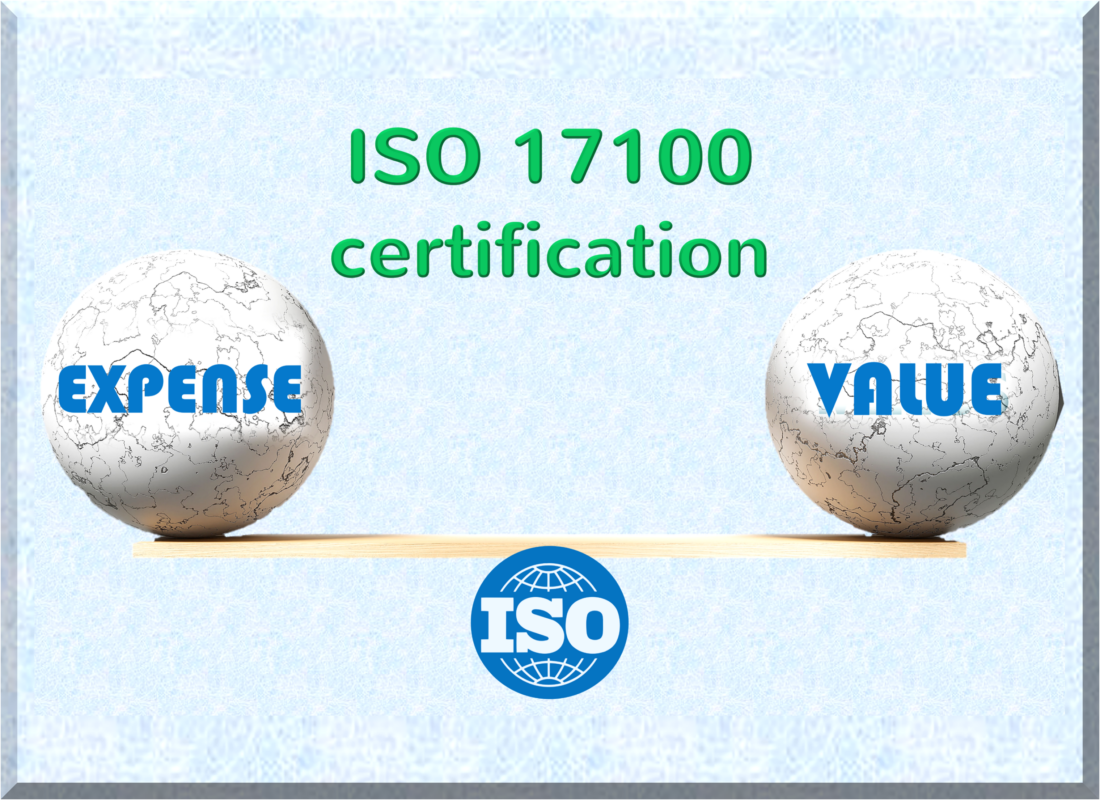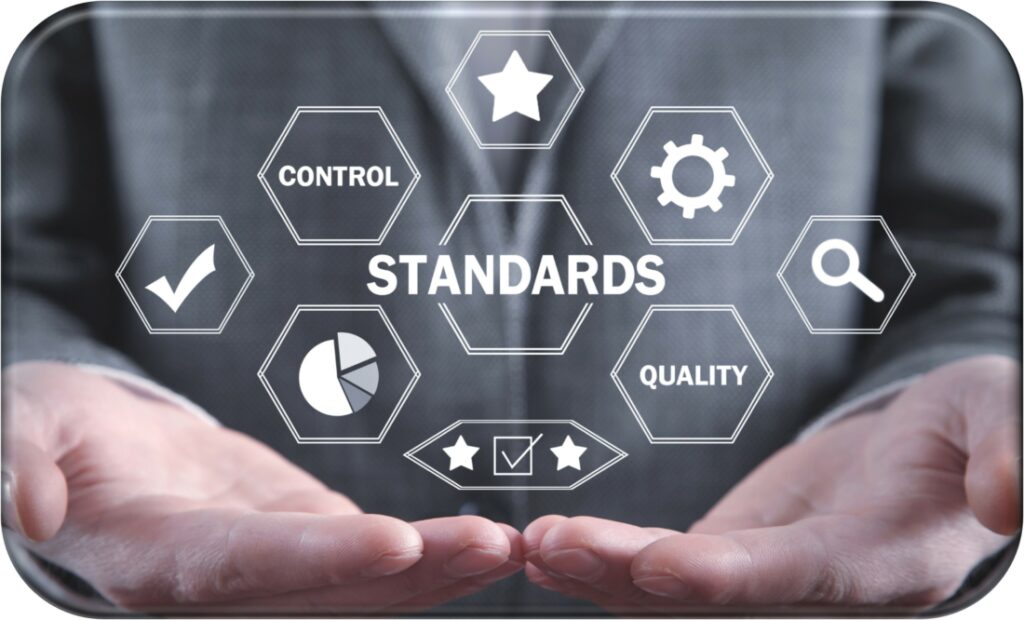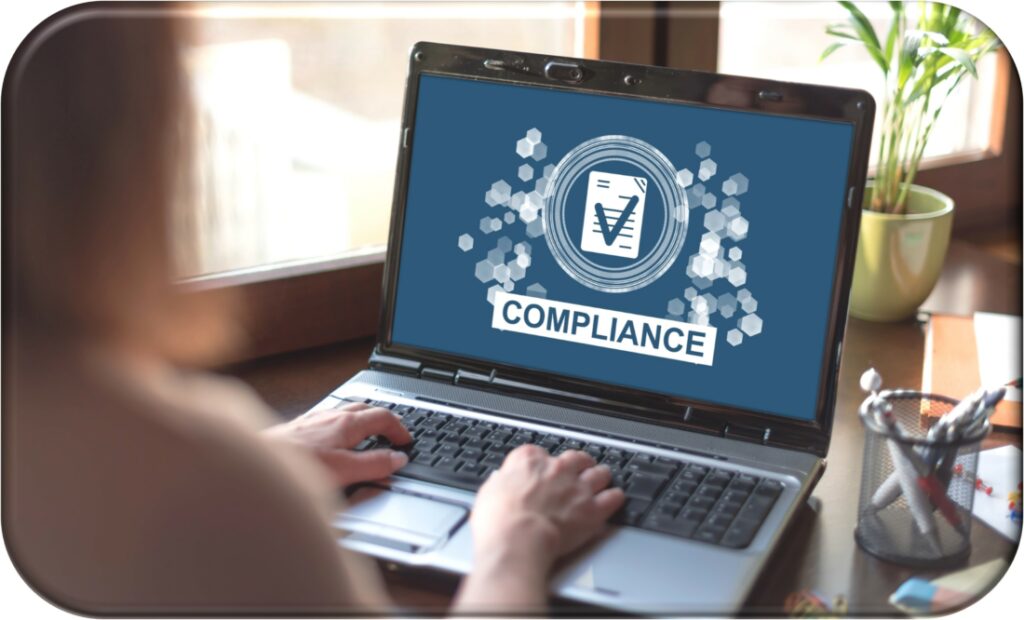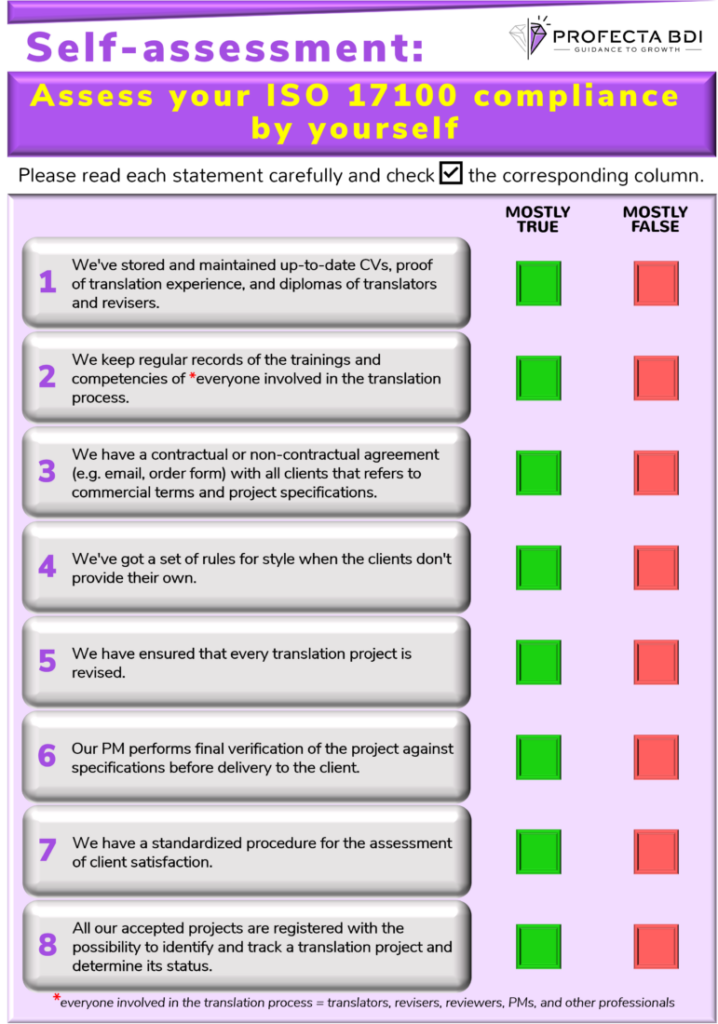
Is ISO 17100 certification expense or value?
ISO 17100 Compliance
ISO 17100 has been a bone of contention for many translation and localization companies.
Some feel that it is not worth implementing, others have been forced to implement by clients, and still, others have simply been forced by market forces.
On the other hand, there are those companies that have initiated the implementation themselves and see ISO 17100 as extremely beneficial because they can structure their business processes efficiently and sleep better knowing they are in control of their business.
Where are you on this spectrum?
ISO 17100 in brief
ISO 17100 Translation services — Requirements for translation services is based on EN 15038:2006 and was published on May 1, 2015.
“This International Standard provides requirements for the core processes, resources, and other aspects necessary for the delivery of a quality translation service that meets applicable specifications.”
The use of raw output from MT plus postediting is outside the scope of the standard, and the standard does not apply to interpretation services.
Back to the beginning of EN 15038
Many translation companies decided in the early days of EN 15038, or even nine years later when its successor ISO 17100 was published, that they would get certified to the standard.
When we talked to some of them and asked them what led to their decision, we found that the first step was to familiarize themselves with the standard. Once they read it, they saw some benefits to organizing the company and processes according to the standard.
These were the ones they liked best:
♦ to revise all translations in order to improve quality
♦ to have contractual or non-contractual agreements with all clients
♦ to have up-to-date documentation (CVs, proof of translation experience and diplomas) for all translators and revisers
♦ have fully traceable processes for project management
♦ have a procedure for handling customer feedback
And so they decided to organize and carry out their translation services according to the standard.
It took them some time to review all areas of their translation business and improve the existing processes, delete the outdated ones, add new processes, and document and bring them to life. Only after an initial testing phase did they decide to get certified and began the process of certification and regular recertification.
What is the situation today?
Today, many companies are hesitant and cannot decide whether to get certified or not. They have many questions:
♦ What would be the benefits of certification?
♦ Is it too expensive for the company to pay for certification?
♦ What are the additional costs of changing processes?
♦ Will they need to hire new staff to implement the processes?
♦ How long will it take to prepare for a certification?
♦ Who is the best person in the company to handle the certification?
♦ How will preparation affect day-to-day operations?
♦ Who needs to be involved in the certification?
♦ Can you prepare everything yourself?
The list of questions to be answered is much longer and we agree that these questions need to be answered before you get the ball rolling.
How beneficial is ISO 17100?
In our video we ask three questions to get you thinking about the benefits of ISO 17100:
1. What if one of your key accounts decides overnight that ISO 17100 is your further collaboration prerequisite?
2. Why are you losing money by not working with clients requiring ISO 17100?
3. How can a completely trackable system ensure long-term stability of your company?
Speaking of clients, it would be a shame if you lose potential clients who only work with ISO 17100 certified suppliers. Or even worse, to lose existing clients who decide overnight that the ISO 17000 certificate is a prerequisite for further cooperation.
We believe that whether you decide to get certified or not, it is very beneficial to fully optimize your processes and structure your company according to this standard.
Compliance with ISO 17100 helps you significantly enhance your translation management environment: human, technical, and technological resources as well as pre-production, production, and post-production processes.
Where my company currently stands?
To help you answer this question, we have created a quick self-assessment for you. Please read each statement carefully to determine if it is mostly true or false for your company. Please check corresponding column. If all statements are mostly true, it is very likely that you are on the right track. However, if most of the statements are false, you should think about redesigning your workflows and processes.
Download our quick self-assessment and check where your company currently stands.
With a little help
In this blog, we have listed some questions that may not be easy for a company to answer if they are not that familiar with the standard itself or the preparation process and ultimately the certification.
If you need some advice or just some brainstorming on how to take full advantage of ISO 17100 compliance and/or prepare for certification, you can book a book a free introductory session to see how we can help you.
Also check out our video to see how we perform our ISO 17100 Compliance Securing service.










